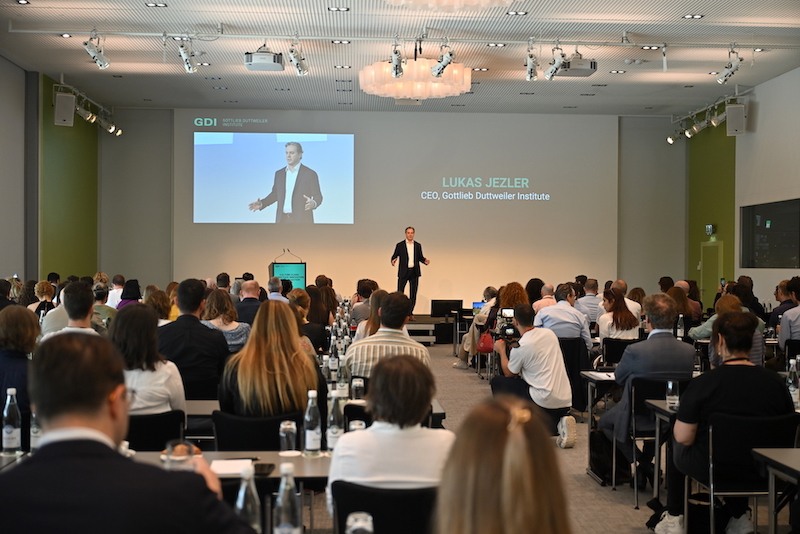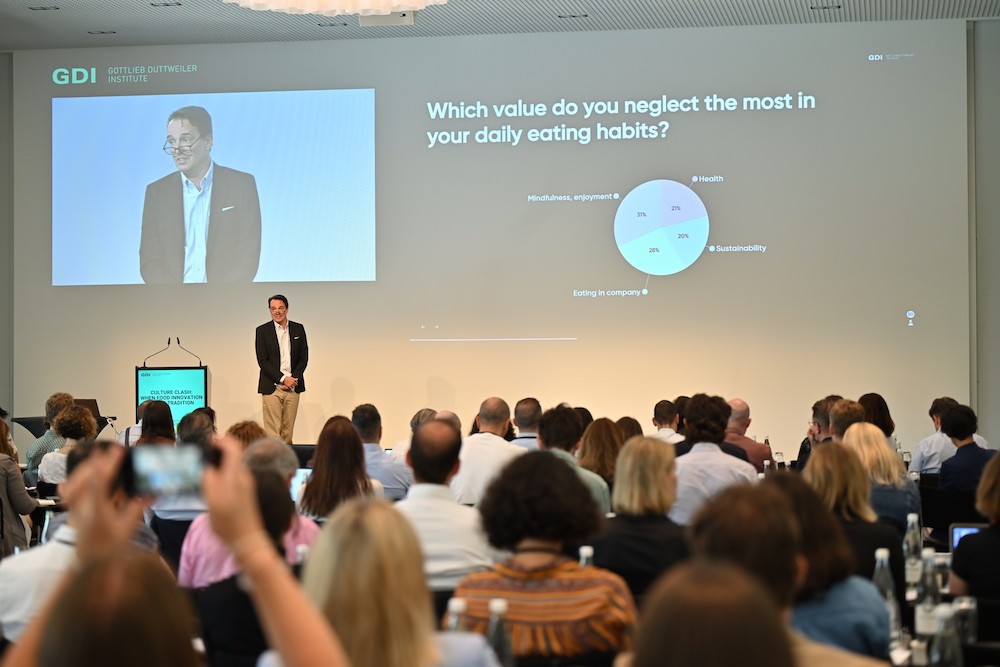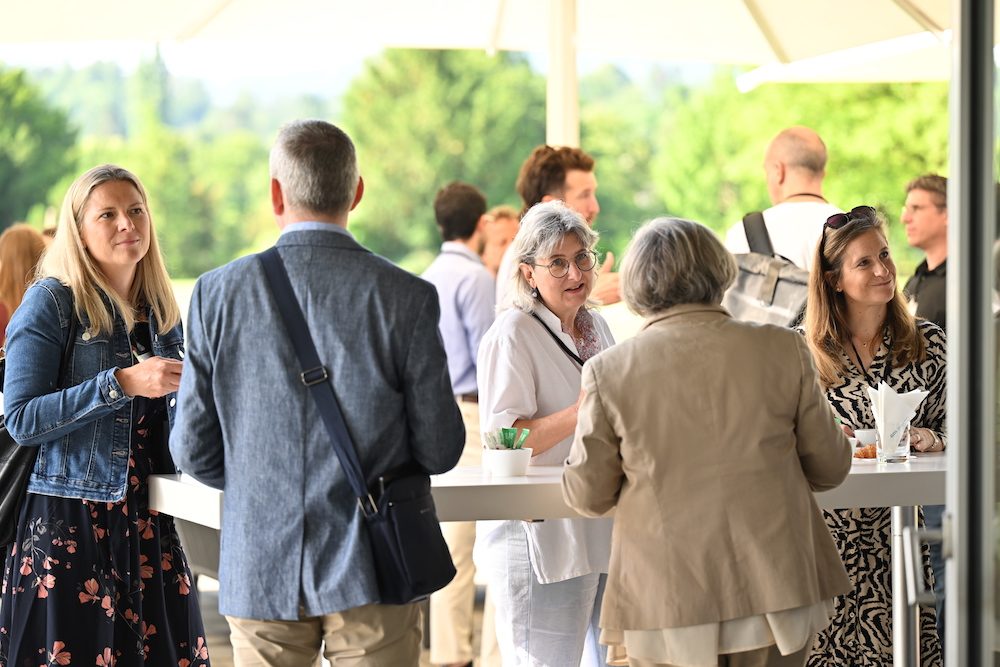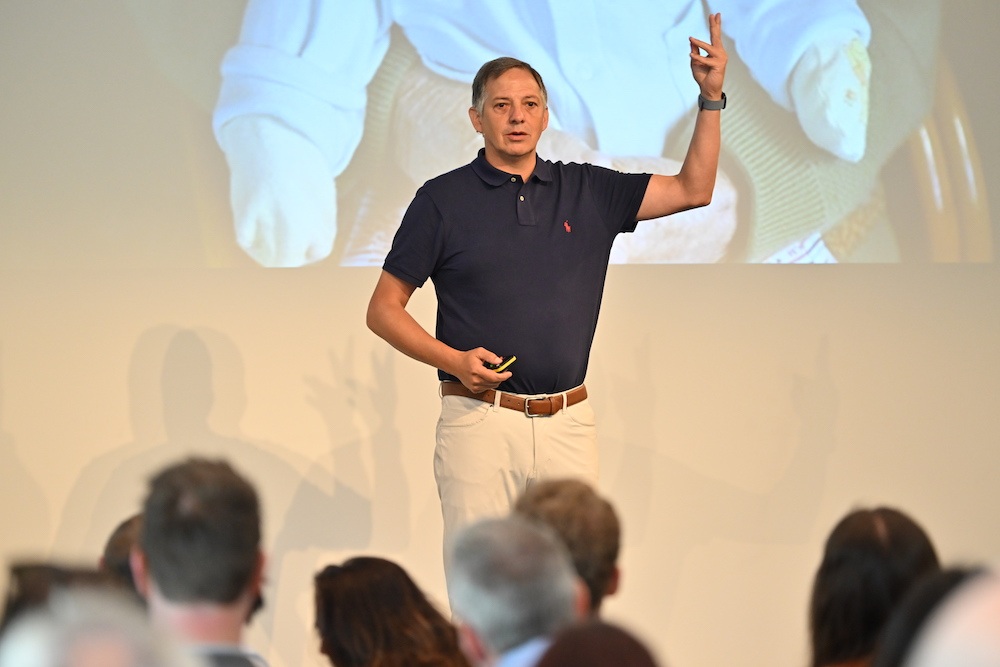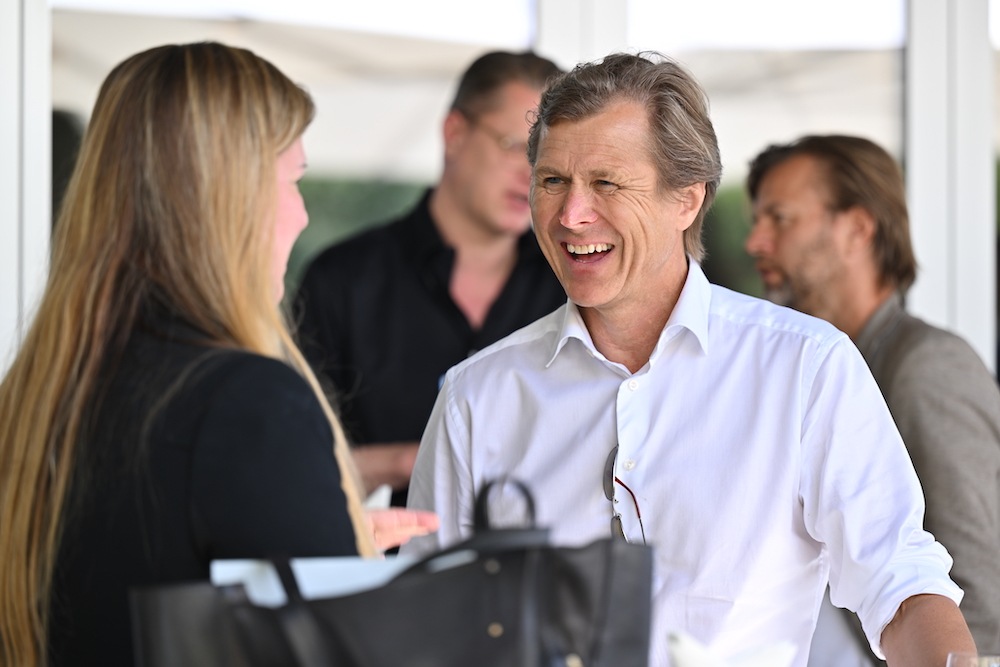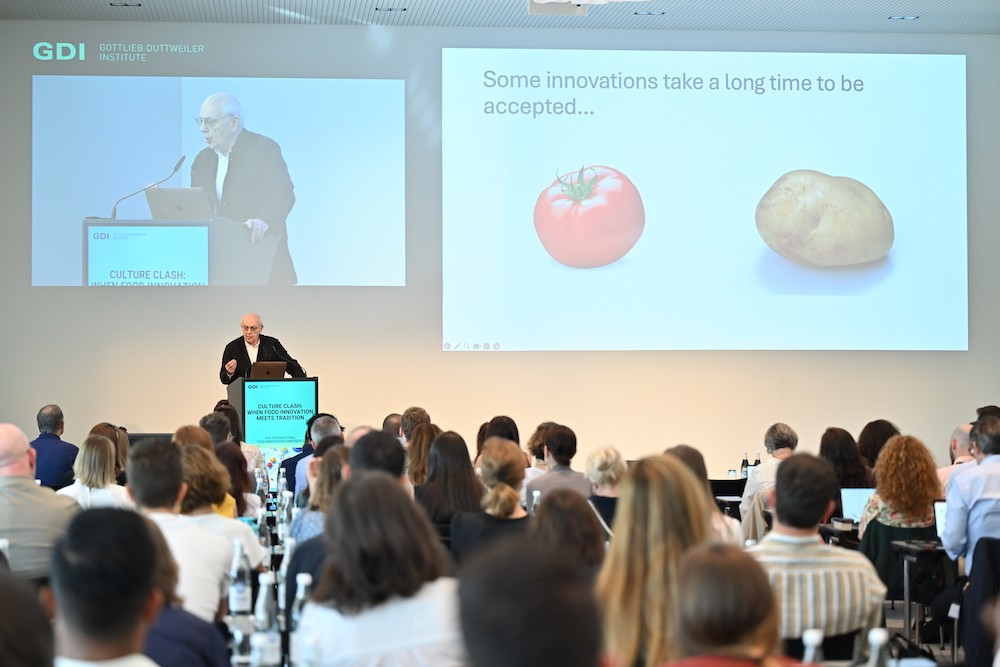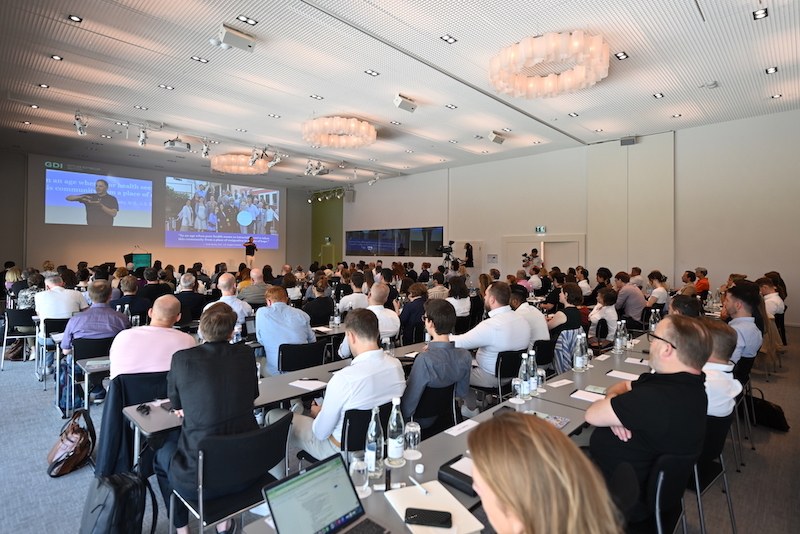The secrets to a long life
The conference began with an inspiring presentation by Nick Buettner, Vice President of Blue Zones, who spoke about the secrets behind having a long life and the food cultures of the regions with the highest life expectancies. He emphasised that genetics only represent 20% of the factors behind longevity, while the main influence is lifestyle. Residents of the areas with the highest life expectancies share nine common characteristics, known as the "Power 9": exercise, a clear purpose in life, regular stress relief, moderate food intake, a predominantly plant-based diet, moderate wine consumption, strong social ties, prioritizing family and belonging to a spiritual community. According to Buettner, these are all key factors for ensuring their remarkable longevity. He concluded his presentation with an appeal: "If we don't design our own food system ourselves, it will be designed for us – often by companies."
"If you are what you eat, you want to know what you eat"
Claude Fischler, sociologist and anthropologist, spoke about the changes in eating habits and how individual decisions can overcome cultural norms. He emphasised that food cultures are more than just culinary choices – they shape cultural norms and identities. Food is not just a consumer good, it also becomes part of our body and shapes our identity and social relationships. He emphasised that communal meals and the sharing of food are more important than individual choices, as they strengthen social bonds and bring joy.
Success factors for novel foods in new markets
GDI researcher Christine Schäfer presented exciting findings on regional differences and their significance for novel foods. Food cultures are defined by six essential factors: enjoyment, community, health, control, rituals and roots. Schäfer's findings show that the success of new products depends not only on taste, but also on cultural preferences and local traditions. When entering new markets, manufacturers must therefore pay attention to both the sensory qualities of their products and their cultural integration.
Responsible consumption and sustainable food systems
Marta Messa, Secretary General of Slow Food, spoke about the responsibility that comes with enjoying food and emphasised the need to restore the connection with traditions and the environment. She presented her organization's mission to make the food system sustainable. Despite progress being made in well-being, people are still going hungry, while a third of the food produced is wasted. According to Marta Messa, the solution is not to increase production, but to improve it through local systems based on local knowledge and economy. She called for a comprehensive change in the food system that involves all stakeholders – from industry, agriculture and politics to consumers, gastronomy and retail.
Farmers and cultured meat
The interview with Illtud Dunsford, CEO of Cellular Agriculture Ltd, highlighted the important role that farmers and ranchers can play in the transition to sustainable food systems. He emphasised that cultured meat is an important innovation for combating overconsumption. He also spoke about the need to respect every part of the animal and the entire food production process when using animals for food.
Sustainable food projects of the Villars Fellows
In a refreshing addition to the programme, two committed young people showcased their sustainable food projects. Olivia Avalos Villar from the International School Basel introduced one meat-free day per month in the school canteen to reduce the school's carbon footprint. Ben McKinlay from the International School of Zug and Lucerne acquired an innovative composter machine for his school, which converts all food waste into compost for the school garden within two days. Their projects showed how the next generation is driving forward a sustainable food culture.
The future of sustainable alternatives to cheese
After a delicious vegetarian lunch, the program picked back up with a number of exciting presentations. Eva Sommer, CEO and founder of Fermify, presented potential alternatives to cheese. Animal products—mainly from cows—are responsible for 14.5% of global greenhouse gases. For this reason, Fermify cultivates microorganisms in bioreactors and uses precision fermentation to minimize environmental costs as well as water and CO2 consumption. By 2027, Eva Sommer hopes that casein produced using precision fermentation will be able to compete with cow-based casein in terms of price. Although consumers show a preference for high-quality products, they are also price-sensitive. Fermify therefore develops technologies that can also be used by non-biotechnologists and works closely with retailers to successfully bring their products to market.
Cell-based foie gras as a sustainable gourmet food
Nicolas Morin-Forest, CEO and co-founder of Gourmey, presented his vision of cell-based foie gras as a sustainable gourmet food. He emphasised the importance of precision fermentation for producing animal products such as foie gras without the environmental impact of conventional methods. Morin-Forest emphasised that the technology makes it possible to imitate the taste and quality of traditional food while drastically reducing the environmental impact. He also discussed the challenges and opportunities arising from the different regulations in force around the world and emphasised the necessity of having to work with top chefs to develop tasty products that can successfully appeal to the market.
Food culture trends in gastronomy
Jochen Pinsker from Circana highlighted the current trends in gastronomy and showed how much social and cultural changes influence eating behavior. One striking example is that 26% of people in the USA eat in their cars, compared with just 2% in Spain. Cultural drivers such as increasing mobility, more women in full-time work and more single households have a strong influence on eating habits and gastronomy. In addition, the pandemic brought about lasting changes to the industry: a decline in visitor numbers, an increase in solo dining, more digital orders and the desire for sustainable and inclusive offerings. According to Pinsker, the gastronomy industry of the future will be healthier, more sustainable, meat-free, more international and be centred on digital orders.
A transformative journey from sausages to vegetarian products
The next presentation was held by Patrick Bühr from Rügenwalder Mühle, who told the audience about the success story behind the family-owned company, which took the step of offering meat-free products back in 2014. This bold move to combine tradition and innovation as a sausage manufacturer proved successful. Today, meat substitute products account for some 60% of their sales. Bühr emphasised the importance of long-term thinking and constant dialogue with the brand. Unlike many meat producers, Rügenwalder Mühle sells its vegetarian products under its main brand. This integrative approach, coupled with a strong focus on taste and sustainability, has been crucial to their success.
The role of Generation Z
Yannick Blättler from Neoviso presented fresh perspectives on Generation Z and its role in changing food culture. He identified three key trends: the changing employment market, the general well-being of Gen Z and the transformative effect of technology. Blättler emphasised that new products should be instantly available, flexible and transparent in order to appeal to Gen Z. He recommended using TikTok specifically in marketing, as this is supposedly the search engine used by young people. Food content such as "What I eat in a day", "A day in the life of a private chef", "Tiktok Candy Shops" via content creators and livestreams as well as "crossovers" of various country specialities are very popular.
A new look at Chinese cuisine
The closing keynote speech by Fuchsia Dunlop, an award-winning author and expert on Chinese cuisine, offered a new perspective on the diversity, creativity and sustainability of Chinese cuisine. She refuted Western stereotypes that often dismiss Chinese food as unhygienic, greasy and exotic by stressing that Chinese cuisine reflects an adventurous sense of diversity, marked by regional differences and deep cultural significance. Dunlop explained that Chinese cuisine is very sustainable, as every part of the animal is used and all preparation work is carried out with great appreciation for quality and taste, in line with traditions and by hand.
Impressions
The conference ended with a informal drinks reception on the terrace overlooking Lake Zurich, where participants had the opportunity to continue discussions in an informal atmosphere and make new contacts.
Conclusion and outlook
The 4th International Food Innovation Conference showed that cultural traditions and innovations in the field of nutrition can and should be harmonised. We look forward to seeing you (again) at next year's conference. Make sure to reserve 19 June 2025 in your diaries.
